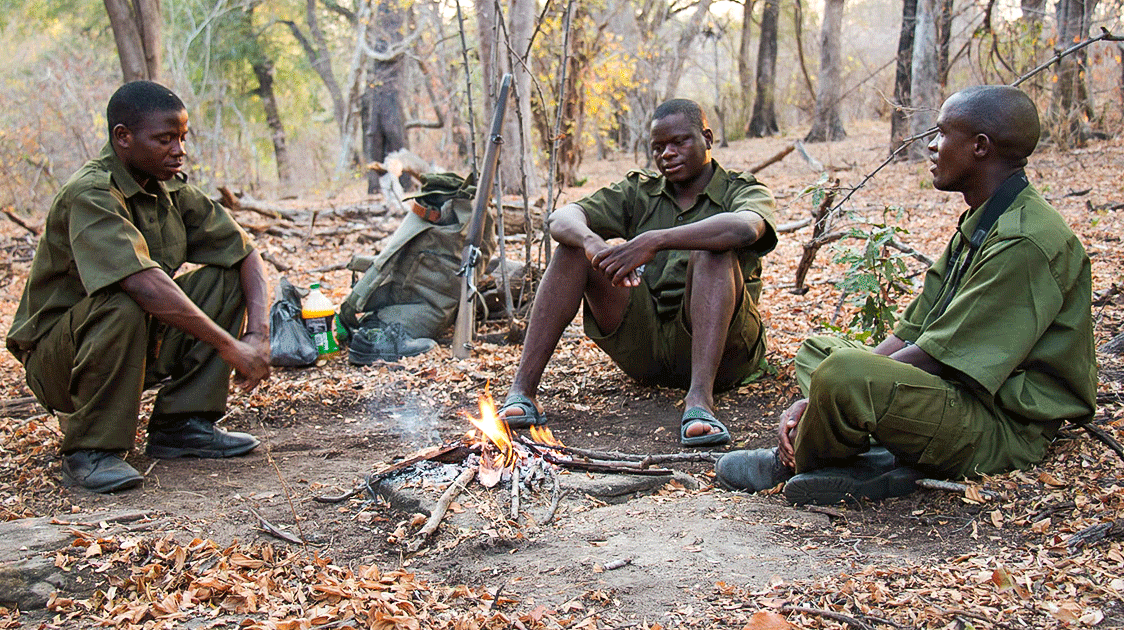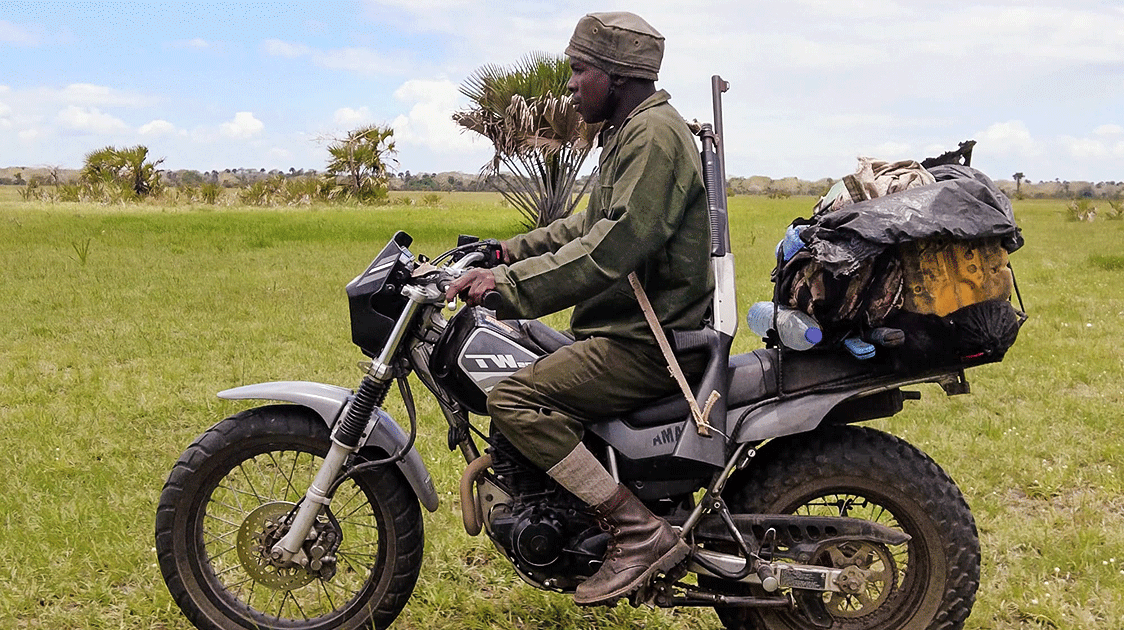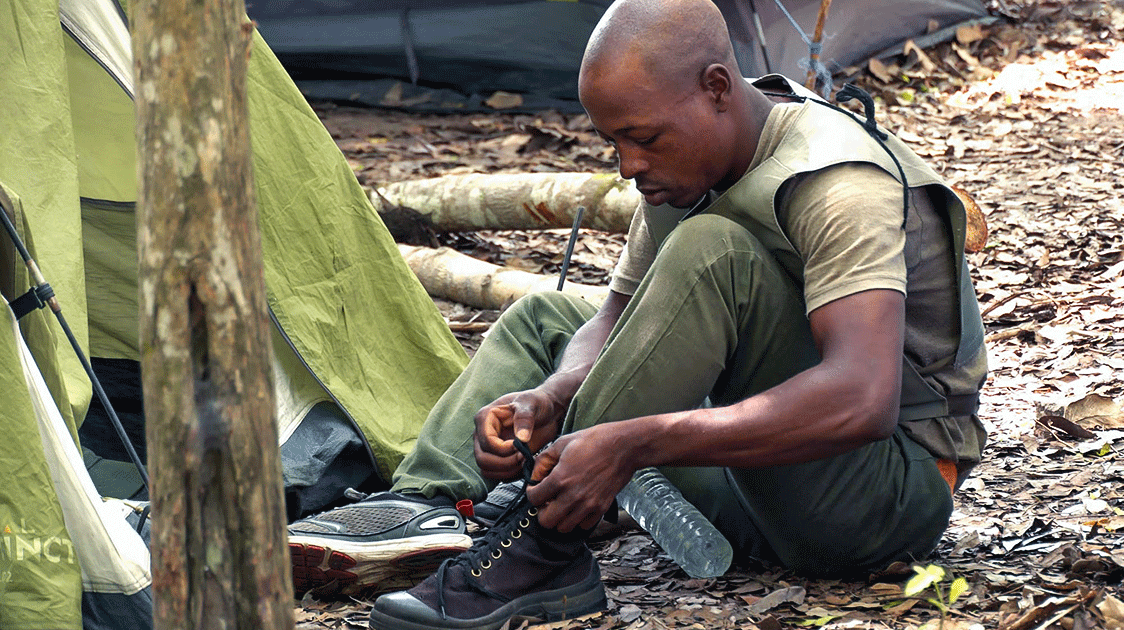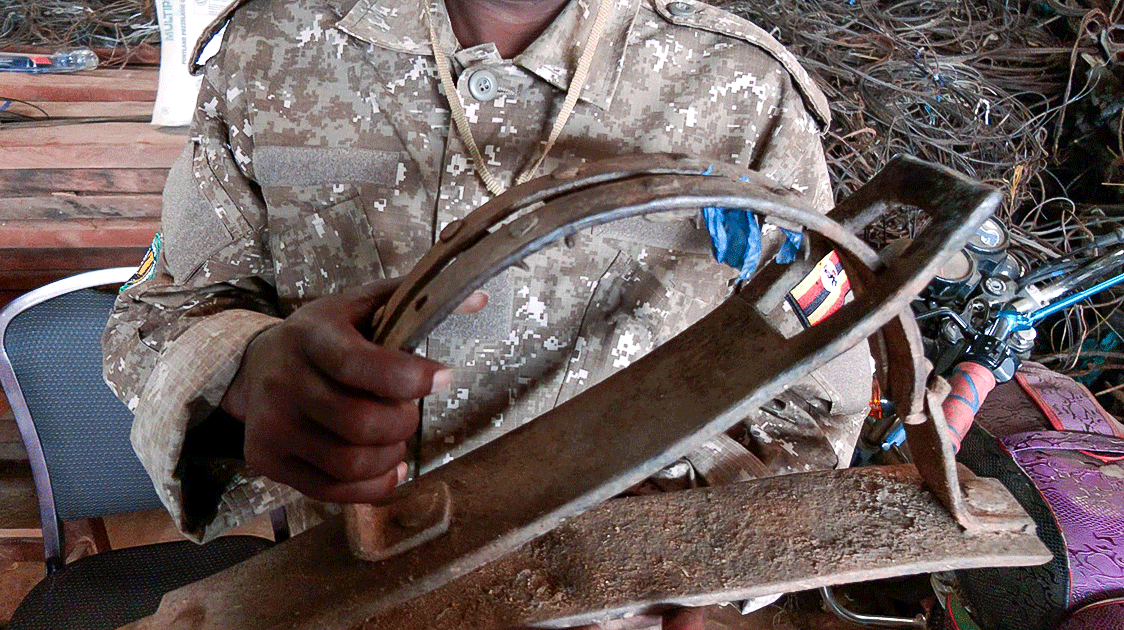Off-Duty Security Awareness for Rangers

By Lieutenant Colonel Rafael Dilguerian De Oliveira Conceição
According to current global statistics, two rangers lose their lives in the line of duty every week, with over 1,000 rangers killed worldwide and many more injured over the last 10 years.
Nearly 9 out of 10 African rangers (88.6%) have reported facing life-threatening situations in the line of duty.
Rangers are also vulnerable while they are off duty.
Lieutenant Colonel Rafael Dilguerian De Oliveira Conceição of the São Paulo State Military Police, Brazil, is a passionate conservationist with an impressive CV. He has a master's degree in police science and a law degree. He is a military instructor and expert in training shooting and firearm proficiency.
He specialises in environmental, internal affairs, and intelligence policing and is a staff officer at São Paulo State Military Police Environmental Command, where he also teaches.
He is also a black belt in Brazilian Jiu-Jitsu.
Rafael is an ardent supporter of Patrol: Anti-poaching in Action and often engages in various anti-poaching subjects.
Below, Rafael gives a brief overview of how rangers can mitigate the threat of attack whilst off duty.

Four Security Perspectives for Off-Duty Law Enforcement Officers
After three decades of service with the São Paulo State Police (Brazil), one of South America's largest law enforcement agencies, I have developed several perspectives on the risks facing personnel while off duty during their leisure time.
This article highlights the importance of continuous research and procedure development to avoid security risks for our Law Enforcement Officer (LEO) community and, by extension, all those who legally carry firearms.
These security risks range from becoming victims of robbery and homicide to engaging in altercations that result in serious injuries and legal problems.
1. Travel Routes, Public Venues, and Street-Level Residences Present High-Risk Factors
Most incidents occur while LEOs are in transit (driving, walking, or waiting in public spaces).
Additionally, venues open to the public with minimal or weak access control, such as public transportation, gas stations, open events, and bars with sidewalk seating, represent particularly vulnerable locations for off-duty personnel.
In my assessment, the following factors facilitate risk in both circumstances:
- Lack of physical barriers against gunfire or a close physical approach.
- Large numbers of unknown individuals in the same location make it difficult to maintain concentration and identify suspicious behavior.
- Need to perform other tasks that divert attention (driving, making payments, shopping, leisure activities).
- Opportunities for surprise attacks.
Regarding the Brazilian context specifically, street-level houses (as opposed to those in secured compounds) are more susceptible to attacks while residents enter or exit their homes or during home invasions.
I attribute this vulnerability in street-level housing to several factors:
- The absence of 24/7 private security personnel was found in gated communities.
- Surprise attack opportunities during arrival and departure.
- In gated communities, residences maintain a significant distance between the perimeter wall and the street; this buffer zone does not exist for street-level homes.
2. "Relaxed" Time Requires Continued Vigilance

Being off duty might feel like "turning off a switch," but we must strive to maintain alertness since incidents occur regardless of time or day.
The following practices can help maintain awareness:
- Maintain physical distance from unknown individuals.
- Avoid high-risk locations.
- Avoid direct eye contact, which may be perceived as defiant and escalate tensions.
- However, do not lower your head submissively; this may be seen as weakness.
- Focus your gaze at strangers' waist level; this posture appears neither defiant nor submissive, allowing you to observe their entire body for concealed objects or incoming attacks.
- Avoid traffic-related confrontations, as road rage has resulted in serious incidents; remain in your vehicle (where you have protection) until you can assess your opponent's level of aggression.
- In public spaces, always protect your back by positioning yourself against a wall; this reduces potential attack vectors by 50%, limiting threats to frontal approaches only.
- Avoid arguments or provocative behavior generally, as "non-criminal" circumstances and general disagreements can rapidly escalate to physical violence or weapon use (knives or firearms).
- When away from home, wear sturdy shoes or boots; never wear sandals or go barefoot, as toes are extremely vulnerable if stepped on during physical altercations.

3. Off-Duty LEOs Operate at a Disadvantage
When facing threats unrelated to criminal activity, confrontations typically occur one-on-one.
However, when incidents involve criminal motives (particularly robberies), the typical ratio involves one victim facing a minimum of two opponents.
Martial arts practitioners understand how difficult it is to immobilize or incapacitate even a single opponent; this becomes exponentially more challenging in real street situations due to stress levels and surprise factors.
Fighting multiple opponents simultaneously presents extreme difficulty.
From a tactical perspective, this disadvantage suggests we should:
- Maximize verbal communication to de-escalate situations and avoid physical confrontation.
- Leave the area when arguments or fights appear imminent.
- When victimized by robbery, remember that thieves typically work with at least one additional partner; consider this before choosing to respond with force or physical resistance
4. Critical Consequences
Just as we must account for our actions while on duty, we bear the same responsibility while off duty.
Critical consequences may include:
- Death
- Serious injury
- Arrest
- Substantial legal expenses if actions cannot be clearly justified
- Termination from law enforcement agency if actions are deemed illegal
Behaviors requiring careful consideration to avoid critical consequences:
Reckless Heroism: Creates high risk of death, injury, or collateral damage to innocent parties.
Fighting or Arguments Over Trivial Matters: This includes all situations that do not represent genuine threats to life or safety, or disputes that could be resolved through legal channels (traffic incidents, neighborhood disagreements, circumstances where it is unclear whether you were attacked or victimized).
Unauthorized Employment: In Brazil, active LEO members are prohibited from certain types of secondary employment, particularly private security work. Beyond legal restrictions, private security activities in Brazil are extremely dangerous, and law enforcement personnel are highly likely to die or suffer serious injury.
Frequenting Inappropriate Locations: This refers to venues likely to attract criminals, involve drug use, or host criminal activity.
Conclusion
Effectively managing off-duty threat situations requires recognizing that we lack several key advantages:
- Uniform or identifying insignia
- Police vehicle
- Partner backup
- Radio communication
- Intimidating presence that opponents associate with law enforcement (we may assume they recognize us as LEOs, but opponents typically perceive us as ordinary civilians)
However, our sense of duty often compels us to act instinctively.
Training, continuing education, and knowledge sharing within a strong and cohesive LEO community—and among all those legally authorized to carry firearms—represent our best pathways to improving safety and security.
Lieutenant Colonel Rafael Dilguerian De Oliveira Conceição can be contacted at:
WhatsApp/Mobile: +55 11 9 8174 8439
Email: dilguer@gmail.com
Instagram: @RafaelDilguerian




